Huawei announcements on CloudMatrix-384 deployment across 4 major data centers. Largest data center has 432 super nodes and 160k in cards -> 129 EFLOPS in computation.
You are using an out of date browser. It may not display this or other websites correctly.
You should upgrade or use an alternative browser.
You should upgrade or use an alternative browser.
Chinese semiconductor thread II
- Thread starter vincent
- Start date
New breakthrough in bonding equipment, Jiaocheng Ultrasonics received bulk orders from leading semiconductor companies.
Recently, the listed company Jiaocheng Ultrasonics has successfully won batch orders from leading semiconductor packaging customers, including wire bonding machines, aluminum wire bonding machines, PIN ultrasonic welding machines, ultrasonic scanning microscopes (SAT) and other equipment, fully demonstrating the technical platform advantages of the leading domestic ultrasonic equipment. Among them, the wire bonding machine has received batch orders and successfully achieved domestic substitution, which fully demonstrates the technical strength of the company's wire bonding machine and its leading position in the field of domestic ultrasonic equipment for power semiconductors.
Strong accumulation: Leading the wave of domestic substitution
The high-end semiconductor packaging equipment market has long been dominated or even monopolized by imported brands. Domestic packaging companies face multiple difficulties such as technological blockades, high costs and long delivery cycles. Jiaocheng Ultrasonics has continued to invest intensively in research and development for many years, and has successfully overcome a series of core technical challenges such as precision bonding, precision transfer, high-frequency pulse generators, high-frequency precision ultrasonic probes, and high-speed data acquisition cards, and has achieved self-research and self-supply of a full set of ultrasonic systems, key components and complete machines. In the power semiconductor industry, Jiaocheng Ultrasonic has created a complete product matrix, covering key packaging processes such as die attach, wire bonding, signal terminal ultrasonic welding, and ultrasonic non-destructive testing.
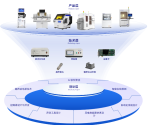
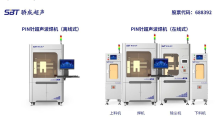
Strong accumulation: Leading the wave of domestic substitution
The high-end semiconductor packaging equipment market has long been dominated or even monopolized by imported brands. Domestic packaging companies face multiple difficulties such as technological blockades, high costs and long delivery cycles. Jiaocheng Ultrasonics has continued to invest intensively in research and development for many years, and has successfully overcome a series of core technical challenges such as precision bonding, precision transfer, high-frequency pulse generators, high-frequency precision ultrasonic probes, and high-speed data acquisition cards, and has achieved self-research and self-supply of a full set of ultrasonic systems, key components and complete machines. In the power semiconductor industry, Jiaocheng Ultrasonic has created a complete product matrix, covering key packaging processes such as die attach, wire bonding, signal terminal ultrasonic welding, and ultrasonic non-destructive testing.


Loongson new product launch conference officially announced! 64 cores and 128 threads of the super CPU are expected to be officially launched.
Loongson new product launch conference officially announced! 64 cores and 128 threads of the super CPU are expected to be officially launched
Loongson 3C6000 is based on the same LA664 architecture core as the Loongson 3A6000 desktop processor, with a six-launch pipeline, and general performance is exponentially improved over the previous generation.
A single silicon chip has up to 16 cores and 32 threads, supporting dual-way, quad-way, and eight-way direct connections.
Through the Dragonchain interconnection technology and chip architecture, it can integrate and package two silicon chips into a Loongson 32-core 64-thread, and four silicon chips into a Loongson 64-core 128-thread , and can also reduce the access delay between chips by several times.
The memory supports quad-channel DDR4-3200, the bandwidth is increased exponentially, and it can be expanded to support 64 PCIe 4.0 lanes, an order of magnitude increase. It also supports high-performance national encryption and decryption algorithms, and the SM3 bandwidth exceeds 20Gbps.
According to the results of Loongson's internal self-test, the performance of the 16-core 32-thread 3C6000/S is comparable to that of the Xeon 4314 (10nm/16 cores and 32 threads/2.4-3.4GHz/24MB/135W), and the 32-core 64-thread 3D6000 (3C6000/D) in dual silicon wafer packaging is comparable to that of the Xeon 6338 (32 cores and 64 threads/2.0-3.2GHz/48MB/205W).
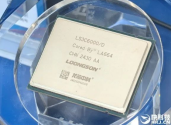
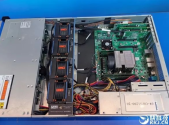
Not doubting about Chinese EUV progress. But how reliable is this guy?Sir from Motif (China military Forum)
Yangtze Memory Technologies received an additional investment of RMB 1.6 billion
Wuhu Wenming Quanhong Investment Management Partnership (Limited Partnership), controlled by Yangyuan Beverage, increased its capital by RMB 1.6 billion in Yangtze Memory Technologies Holdings Co., Ltd. with monetary investment. After the completion of this transaction, Quanhong Investment holds 0.99% of the shares of Yangtze Memory Technologies Holdings Co., Ltd. Yangtze Memory Technologies Holdings Co., Ltd. is a semiconductor memory developer and an IDM integrated circuit enterprise focusing on the integrated design and manufacturing of 3D NAND flash memory. It also provides complete memory solutions.
Signing of the project for the R&D and production base of measurement equipment in Central China by A-Semiconductor
Shenzhen Axin Semiconductor Technology Co., Ltd. signed a contract for the measurement equipment R&D and production base project in Wuhan East Lake High-tech Zone. It is reported that Axin Semiconductor focuses on the field of high-end wafer manufacturing front-end measurement equipment. This time, Axin Semiconductor plans to build a semiconductor measurement equipment central China R&D and production center in East Lake High-tech Zone, dedicated to the research and development, production and sales of semiconductor measurement equipment in the central China region, and expand the central China regional market and after-sales service.
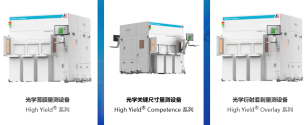
Wuhu Wenming Quanhong Investment Management Partnership (Limited Partnership), controlled by Yangyuan Beverage, increased its capital by RMB 1.6 billion in Yangtze Memory Technologies Holdings Co., Ltd. with monetary investment. After the completion of this transaction, Quanhong Investment holds 0.99% of the shares of Yangtze Memory Technologies Holdings Co., Ltd. Yangtze Memory Technologies Holdings Co., Ltd. is a semiconductor memory developer and an IDM integrated circuit enterprise focusing on the integrated design and manufacturing of 3D NAND flash memory. It also provides complete memory solutions.
Signing of the project for the R&D and production base of measurement equipment in Central China by A-Semiconductor
Shenzhen Axin Semiconductor Technology Co., Ltd. signed a contract for the measurement equipment R&D and production base project in Wuhan East Lake High-tech Zone. It is reported that Axin Semiconductor focuses on the field of high-end wafer manufacturing front-end measurement equipment. This time, Axin Semiconductor plans to build a semiconductor measurement equipment central China R&D and production center in East Lake High-tech Zone, dedicated to the research and development, production and sales of semiconductor measurement equipment in the central China region, and expand the central China regional market and after-sales service.

Regarding 5nm, NOT really, because it was being produce using ASML DUVi by SMIC not an EUVL, BUT his opinion about a Chinese EUVi is spot on, what he forgot to mention is that it will be use to produced 3nm chips instead of 5nm.Not doubting about Chinese EUV progress. But how reliable is this guy?
Skyverse showcased their metrology equipment products in Singapore.
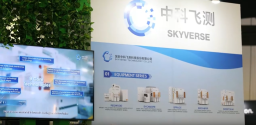
The 2025 SEMICON Southeast Asia International Semiconductor Exhibition will be themed "Strong Alliance" to deeply explore the latest development trends and innovative ideas in the industry. At this important node in the development of the global semiconductor industry, the China Science and Technology Feice team was invited to participate in the exhibition to show the world the innovative achievements and technical strength of China's semiconductor mass testing equipment. At a time when the global semiconductor supply chain is facing restructuring, we look forward to strengthening communication and exchanges with supply chain partners in Southeast Asia, and working together with more international supply chain partners to achieve win-win results while achieving independent and controllable technology.
At the exhibition, the booth of China Science and Technology Feitek became the focus of the industry. With many years of deep cultivation in the field of semiconductor mass testing equipment, China Science and Technology Feitek displayed nine series of equipment and three series of software, which are widely used in key fields such as integrated circuit front-end process and advanced packaging, attracting the attention of many international customers, industry experts and partners.

The 2025 SEMICON Southeast Asia International Semiconductor Exhibition will be themed "Strong Alliance" to deeply explore the latest development trends and innovative ideas in the industry. At this important node in the development of the global semiconductor industry, the China Science and Technology Feice team was invited to participate in the exhibition to show the world the innovative achievements and technical strength of China's semiconductor mass testing equipment. At a time when the global semiconductor supply chain is facing restructuring, we look forward to strengthening communication and exchanges with supply chain partners in Southeast Asia, and working together with more international supply chain partners to achieve win-win results while achieving independent and controllable technology.
At the exhibition, the booth of China Science and Technology Feitek became the focus of the industry. With many years of deep cultivation in the field of semiconductor mass testing equipment, China Science and Technology Feitek displayed nine series of equipment and three series of software, which are widely used in key fields such as integrated circuit front-end process and advanced packaging, attracting the attention of many international customers, industry experts and partners.
If/when they have an EUV instrument it will also help 5 nm, and even 7 nm. EUV simplifies lots of steps, and the more steps the slower more expensive and less accurate the production process. Its benefits are not exclusive to just one node.Regarding 5nm, NOT really, because it was being produce using ASML DUVi by SMIC not an EUVL, BUT his opinion about a Chinese EUVi is spot on, what he forgot to mention is that it will be use to produced 3nm chips instead of 5nm.
Korean and TSMC factories US waiver under threat. I can see this might be a problem for the companies concerned but will it be a problem for China?
The answer is in the article itself.
The waiver removal isn’t confirmed yet, as the Journal’s report claims Kessler’s office at the Bureau of Industry and Security hasn’t gotten full approval from the rest of the US government.
There’s pushback inside the administration. Some officials, especially in the Defense Department, believe that scrapping the waivers could actually help China, worried that if American firms leave, Chinese companies will just take over the plants, according to the Journal. But Kessler and the national security faction argue that more aggressive controls are needed to block China’s growth in key technologies.
At the same time, Samsung, TSMC, and SK Hynix have all alerted their own governments. They’re asking authorities in South Korea and Taiwan to step in and help block the waiver changes.
Their argument is simple. They need their Chinese factories to compete. Samsung’s current waiver lets its Xi’an plant make advanced chips that directly challenge China’s Yangtze Memory Technologies. Losing that ability hands the advantage to China, the very outcome the US says it’s trying to avoid.
It's just more desperation for RE
The White House also defended the move, saying it’s not meant to increase trade tensions. Instead, it’s about aligning licensing rules with how China treats its own rare-earth material exports.
Commerce also floated a broader ban on chip equipment sales to China, though a White House official said that idea is no longer being considered.
Last edited:
